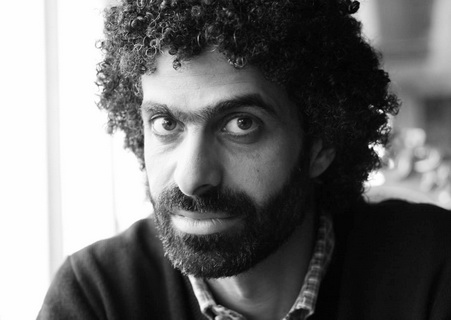 Although Egypt is famous for its rich and well-recorded history, the lessons of historians often fail to penetrate outside of a small circle of academia. Politicians are by far the best example of those who fail to learn from the past.
Although Egypt is famous for its rich and well-recorded history, the lessons of historians often fail to penetrate outside of a small circle of academia. Politicians are by far the best example of those who fail to learn from the past.
The situation in Egypt after Morsy’s electoral success – which is so far his only political success – can be compared with the beginning of Muhammad Ali Pasha’s era (1805 – 1848). There are certainly significant differences – some might rightly point out that Egyptians did not have Facebook back then, which is true. But let’s look at a snapshot of Egypt in 1805 and see how the situation was then.
Why did the prominent historian of that era, Abdul Rahman Al-Jabarti (1754 – 1822), say, in reference to Mohammed Ali, “If only God blessed him with some justice as equal to his insistence, leadership, nobility, cunning and patience, he could have been the unique miracle of his age”?
At that time there was an ongoing revolution in Egypt against the ‘walis’ (governors), who were appointed and sent from Istanbul by the Ottomans, following the departure of the French Napoleon Bonaparte campaign in 1801 after severe losses over three years of occupation.
For the first time in Ottoman history, a wali – Muhammad Ali – was chosen and put into power by the people, against the will of the empire. However, that was only the beginning of greater challenges.
The new wali took over the country at a time when it was suffering from a collapsed economy, severe poverty and famine, with markets unable to provide people with their basic needs.
Mamluk militias – remnants of a former state – were present across the country, creating chaos and instability, and demanding that their governing powers be returned.
From the beginning, the Ottomans perceived Ali as an enemy of the empire, but they decided to avoid direct confrontation with him – a fact which the new people’s wali realised well.
The British were working hard to occupy Egypt and use it as a base to fight against the Ottoman Empire, Europe’s number one enemy.
Meanwhile the religious elite, headed by Omar Makram, who had helped mobilise the people to insist on Ali, felt they had power over Ali and believed that, since they had brought him in, they could also overthrow him at any time.
In all, the beleaguered new wali faced at least five extraordinary challenges: a collapsed economy, Mamluk militias, furious Ottomans, the interfering British, and a powerful religious elite. Isn’t this deadly cluster in a way similar to the power struggle taking place in today’s Egypt – albeit probably less bloody, given a difference of two centuries?
The wily Muhammad Ali picked his battles one at a time, and at the times he desired. He let the enthusiastic people fight against, and defeat, the British (Frasier’s Campaign – 1807). He turned the people against Omar Makram, sending him into exile (1809). He orchestrated a well-tailored massacre against the Mamluks, inviting them to a carnival that was in fact a trap allowing him to dispose of approximately one thousand of their leaders and seniors in one night (Citadel Massacre – 1811). He rebuilt the whole economy based on an agricultural-industrial modernisation movement, he enforced education, and he pursued comparative advantage trade with other nations. As for the Ottomans, he almost managed to occupy their capital, Istanbul (1832), but the Russians interfered.
Despite some deterioration due to a global alliance against the newly-born project of this up-coming world power, Muhammed Ali’s state extended from Sudan in the south, Hejaz (currently Saudi Arabia) in the east, and parts of Turkey and Greece in the north. Ali’s state was not only a military power seeking to expand its territory, but it was a powerful one based on knowledge, industry, agriculture and trade – all of which were strategically governed under an advanced public administration.
This is not the lesson: powerful states have risen and fallen throughout human history, and will always do so. What is important is what we can learn when we try to dig deeper, searching through the fine details – since it was a future-changing Egyptian experience. The snapshot just described is definitely not identical to the Egypt of 2012. We do have Facebook now, thank God. And we are not experiencing famine at this moment, nor are there any signs of one to come. However, there are definitely things to be learned, in terms of power games.
This is not a message to President Mohamed Morsy, who is far from resembling Muhammad Ali (Morsy is neither bloody, nor wily). It is a message to the people and those who care about Egypt becoming a democratic state of institutions. There are always hope and dreams, even in the middle of the darkest nights, so long as there is tireless striving, learning, and most importantly, if the right battle is chosen at the right time.


